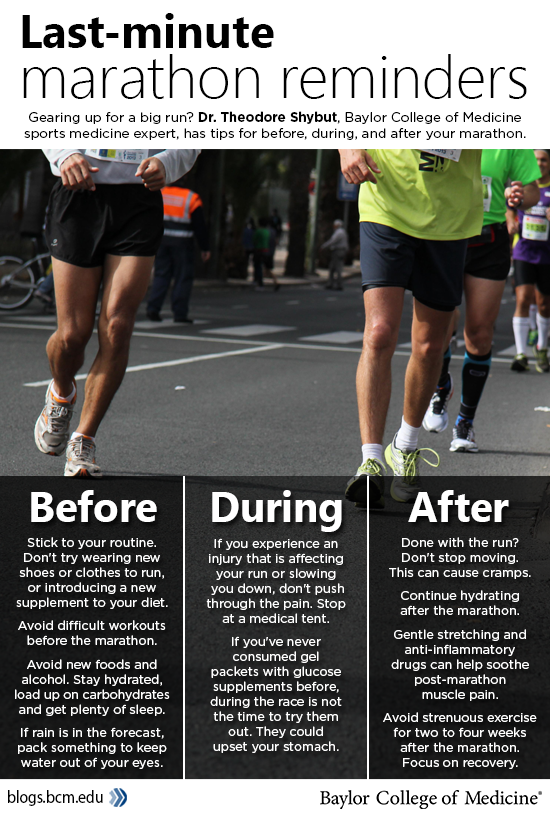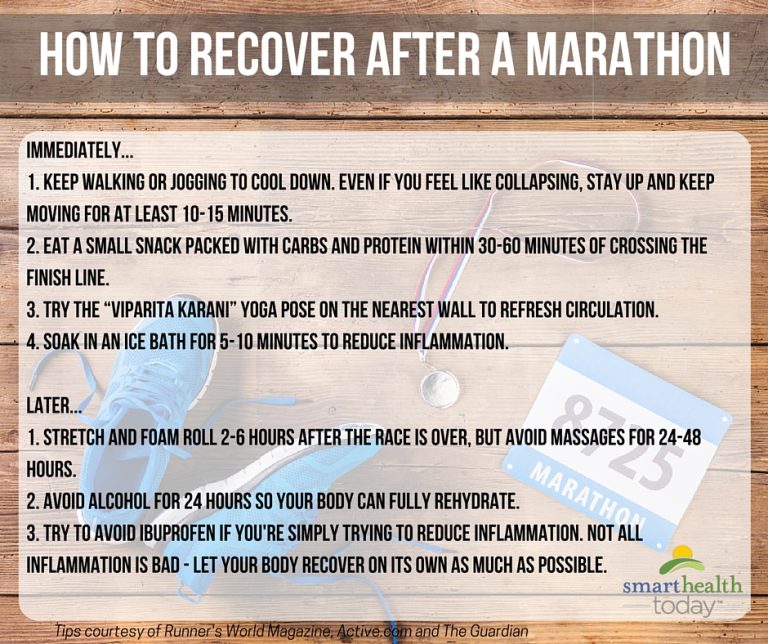Is It Safe to Run Marathon
Running a marathon can be safe if proper training, hydration, rest, and medical advice are followed. Participating in a marathon can be a physically demanding endeavor, but with the right precautions, it is a safe activity that can provide a sense of accomplishment while improving cardiovascular fitness and overall health.
Training for a marathon involves gradually increasing mileage and intensity to build endurance, along with cross-training and strength exercises to prevent injury. Staying well-hydrated and properly fueling the body with a balanced diet are also essential. Additionally, consulting with a physician before participating in a marathon is recommended to ensure that there are no underlying health concerns.
By taking these precautions, running a marathon can be a safe and rewarding experience.
The Physical Benefits Of Marathon Running
When it comes to marathon running, the physical benefits are abundant. Marathon running is not only a test of endurance and willpower, but it also offers numerous advantages to the body. From improved cardiovascular health to enhanced endurance, marathon running can have a profound impact on an individual’s overall well-being.
Improved Cardiovascular Health
Marathon running is a fantastic way to boost cardiovascular health. The long-distance running involved in a marathon helps in strengthening the heart, improving blood circulation, and regulating blood pressure. This vigorous activity stimulates the heart to pump more efficiently, increasing its capacity and reducing the risk of heart diseases and strokes.
Enhanced Endurance And Stamina
Engaging in marathon running enhances endurance and stamina. The consistent training required for this endurance sport builds strength and increases lung capacity, which, in turn, allows the body to endure extended physical exertion. This enhanced stamina offers benefits beyond running, contributing to everyday activities, such as climbing stairs or carrying groceries, with ease and without feeling fatigued.

Credit: www.runnersworld.com
Risks And Safety Measures In Marathon Running
Discover the risks and safety measures essential for marathon running enthusiasts. Focus on training, hydration, nutrition, and gradual buildup to ensure a safe and enjoyable experience. Implement proper precautions to minimize potential injuries and maximize performance during marathons.
Marathon running is an incredible test of endurance and determination. However, it’s important to be aware of the potential risks involved and take necessary safety measures. In this article, we will explore some of the common injuries that can occur during long-distance running and provide you with essential tips to prevent these injuries throughout your training.Potential Injuries From Long-distance Running
Running a marathon puts significant stress on your body, increasing the risk of certain injuries. It’s essential to be mindful of these potential injuries to stay prepared and minimize their occurrence. Some of the common injuries experienced by marathon runners include: 1. Shin splints: These are characterized by pain along the front part of the lower leg and are often caused by overuse or improper running technique. 2. Plantar fasciitis: This condition involves inflammation of the tissue connecting the heel bone to the toes and can cause intense pain in the heel or along the arch of the foot. 3. Runner’s knee: Also known as patellofemoral pain syndrome, this injury causes pain around the front of the knee and can result from poor technique, muscle imbalances, or improper footwear. 4. Achilles tendinitis: It refers to the inflammation of the Achilles tendon, which connects the calf muscles to the heel bone. This injury is often caused by overuse or sudden increases in training intensity. 5. Stress fractures: These are small cracks in the bone and commonly occur in the feet and lower legs due to repetitive impact on hard surfaces.Tips For Preventing Injuries During Training
Taking the necessary precautions during your marathon training can significantly reduce the risk of injuries. Here are some essential tips to keep in mind: 1. Gradual training: Avoid the temptation to push yourself too hard, too soon. Gradually increase your mileage and intensity over time to allow your body to adapt. 2. Proper footwear: Invest in well-fitting, supportive running shoes that match your foot type and running style. Replace them regularly to maintain their cushioning and stability. 3. Cross-training: Include a variety of other activities, such as swimming or cycling, in your training routine. This helps to balance the stress on your body and reduce the risk of overuse injuries. 4. Strength training: Incorporate strength exercises that target your core, hips, and legs to improve stability and reduce the risk of imbalances that can lead to injuries. 5. Rest and recovery: Allow your body enough time to rest and recover between training sessions. Incorporate rest days into your schedule and listen to your body’s signals of fatigue or pain. 6. Warm-up and cool-down: Prioritize dynamic stretching and light cardio activities before running. Afterward, cool down with static stretches to increase flexibility and promote muscle recovery. By being mindful of these potential injuries and implementing the necessary precautions, you can safely train for and participate in a marathon. Taking care of your body is crucial to achieving your running goals and enjoying the experience to the fullest.Nutritional Considerations For Marathon Runners
Marathon runners need to pay close attention to their nutritional intake to ensure they have the energy and stamina required for such intense physical activity. It’s essential to consume a balanced diet with a focus on carbohydrates, proteins, and healthy fats.
Hydration is also crucial to avoid dehydration during the race. Prioritizing proper nutrition and sufficient hydration can help marathon runners stay safe and perform at their best.
Importance Of Proper Hydration And Nutrition
Marathon running is a physically demanding activity that requires proper nutrition to fuel the body and ensure optimal performance. As a marathon runner, it is essential to pay attention to your nutritional needs before, during, and after the race. One crucial aspect of marathon training is maintaining a well-balanced diet that includes the right balance of carbohydrates, proteins, and fats.Pre-race Meal Planning
The pre-race meal plays a vital role in providing the energy needed for a marathon. It’s crucial to choose foods that are easily digestible, high in carbohydrates, and low in fiber and fat. A combination of complex carbohydrates such as whole grains, pasta, and fruits can provide sustained energy throughout the race. It’s also important to stay hydrated by drinking plenty of fluids in the hours leading up to the race.Post-race Meal Planning
The post-race recovery process begins immediately after crossing the finish line. Consuming a well-balanced meal within 30 minutes of finishing the race can aid in replenishing glycogen stores and repairing muscle damage. The meal should comprise carbohydrates to replenish energy stores, proteins to aid in muscle recovery, and fluids to rehydrate the body. Foods like lean proteins, whole grains, fruits, and vegetables should be included in the post-race meal to promote recovery and reduce muscle soreness.Hydration Tips For Marathon Runners
Proper hydration is crucial for marathon runners, as dehydration can negatively impact performance and lead to fatigue. It is recommended to drink approximately 16-20 ounces of water 2-3 hours before the race and continue drinking small amounts of fluids during the race to maintain hydration. Sports drinks can also be beneficial as they provide electrolytes that help replace the minerals lost through sweat.Key Nutrients For Marathon Runners
In addition to carbohydrates and proteins, marathon runners also need to pay attention to other important nutrients. Iron is essential for oxygen transport in the body and can be found in foods like lean meats, fortified cereals, and dark leafy greens. Calcium is vital for maintaining strong bones and can be obtained from dairy products or fortified plant-based alternatives. Omega-3 fatty acids found in fatty fish and flaxseeds have anti-inflammatory properties that aid in recovery and reduce muscle soreness. Overall, paying attention to nutritional considerations as a marathon runner is crucial for optimal performance and recovery. Adequate hydration, well-planned pre and post-race meals, and consumption of key nutrients can make all the difference in your marathon experience. So, make sure to prioritize your nutrition as part of your marathon training journey.
Credit: www.nbcnews.com
Training Techniques For Marathon Success
In order to safely and successfully run a marathon, it’s essential to implement effective training techniques. Whether you’re a seasoned runner or a novice, developing a well-rounded training plan is crucial. Training for a marathon involves more than just building mileage; it also requires incorporating speed and strength training to boost endurance and prevent injury. Let’s delve into the various training techniques that are essential for marathon success.
Building Mileage Safely
Gradually increasing your mileage is fundamental for marathon training. Slowly building up the distance you run each week helps to strengthen your muscles, cardiovascular system, and mental endurance. It’s crucial to listen to your body and avoid pushing yourself too hard, as this can lead to overuse injuries. Incorporating rest days into your training schedule is also important to allow your body time to recover and adapt to the increased mileage.
Incorporating Speed And Strength Training
Integrating speed work and strength training into your marathon preparation can significantly improve your performance. Interval training and tempo runs can help enhance your aerobic capacity, while also improving your body’s ability to sustain a faster pace for longer periods. Additionally, incorporating strength training exercises such as squats, lunges, and core work can help improve overall muscle strength and stability, reducing the risk of injury during the marathon.
Mental And Emotional Aspects Of Marathon Running
Participating in a marathon involves more than just physical endurance. The mental and emotional aspects play a crucial role in how one approaches, trains for, and completes the race.
Strategies For Overcoming Mental Barriers
- Visualize crossing the finish line to motivate yourself during tough moments.
- Break down the race into smaller achievable goals to stay focused.
- Practice positive self-talk to combat self-doubt and build confidence.
The Sense Of Achievement And Fulfillment In Completing A Marathon
- Witnessing months of training pay off fosters a deep sense of accomplishment.
- The euphoria of crossing the finish line brings joy and pride that are unmatched.
- Completing a marathon boosts self-esteem and resilience for future challenges.

Credit: www.themotherrunners.com
Frequently Asked Questions Of Is It Safe To Run Marathon
When Should You Not Run A Marathon?
Avoid running a marathon if you haven’t trained enough or if you have any medical conditions that might put you at risk. Additionally, if you’re injured or recovering from an illness, it’s best to wait until you’re fully healed. It’s important to consult with a healthcare professional before attempting a marathon.
How Many Marathons Is It Safe To Run In A Year?
It is safe to run a maximum of two marathons in a year to prevent overuse injuries and allow adequate recovery time. Pushing beyond this limit may increase the risk of exhaustion and muscle damage, impacting overall performance and long-term health.
Instead, consider focusing on quality training and varied race distances throughout the year.
How To Run Marathon Safely?
To run a marathon safely, follow these tips: 1. Train gradually and make a schedule. 2. Wear proper shoes and attire. 3. Stay hydrated and fuel up. 4. Listen to your body and rest when needed. 5. Pay attention to your form while running.
Conclusion
Running a marathon can be safe if you train properly and listen to your body. By following a structured training plan and consulting with a healthcare professional, you can minimize the risks associated with long-distance running. Remember to prioritize your health and well-being above all else as you pursue your marathon goals.




